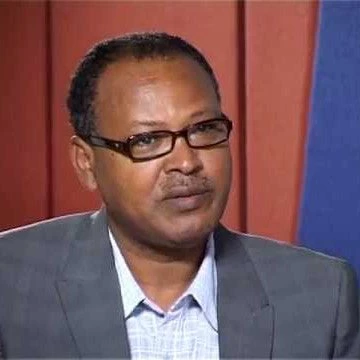
Smallholder farmers face significant challenges to their lives and livelihoods, including reliance on unpredictable rain to grow food and competition for often scarce water resources. The negative impacts of climate change compound the challenge; weather-related disasters such as floods, droughts, and heat waves are increasing in frequency and intensity.
The global COVID-19 pandemic adds another layer of difficulty. National response and mitigation measures may indirectly cause market disruptions that negatively impact food and nutrition security. The World Food Programme estimates that approximately 130 million additional lives and livelihoods are currently at risk.
It is therefore urgent to enhance the resilience of smallholder farming communities; increase multiple-purpose water access; and ensure water, food, and nutrition security for all. The Global Commission on Adaptation (2019) and the Malabo Montpellier Report (2019) confirm the importance of coming together to create innovative water and renewable energy solutions to transform agricultural production systems amid a changing climate.
Series of interactive webinars feature FLI thought leaders
Conscious of the need to come together to solve these challenges, the World Bank, the International Water Management Institute (IWMI), the Daugherty Water for Food Global Institute, and the Global Water Partnership will host a series of interactive webinars on accelerating inclusive farmer-led irrigation development. The virtual mini-series will explore key issues and next steps for operationalizing sustainable and inclusive FLI scale-up. The webinars are geared toward practitioners, policy makers, the private sector, and researchers interested in advancing FLI globally. The webinars will provide an innovative platform to enable collective learning about innovative cases and successes associated with farmer-led irrigation development.
Session 1: Accelerating inclusive FLI and reaching scale: key considerations will take place on June 11, 2020 at 9 am DC time.
The key presenters include:
- Jennifer Sara, Global Lead for Water in Agriculture at the World Bank;
- Claudia Sadoff, Director General at the International Water Management Institute;
- Regassa Namara, Senior Water Economist at the World Bank;
- Thai Thi Minh, Senior Researcher at the International Water Management Institute;
- Nicholas Brozovic, Director of Policy at the Daughterty Water for Food Global Institute;
- Nicole Lefore, Director of the Feed the Future Innovation Lab for Small Scale Irrigation at Texas A&M;
- Samir Ibrahim, CEO and Co-Founder of Sunculture;
- Philip Woodhouse, Professor at the School of Environment and Development at the University of Manchester.
The first session aims to:
- Generate a common understanding of the challenges and opportunities related to scaling inclusive and sustainable FLI with public and private sector support;
- Discuss the potential for new concepts and solutions to overcome systemic barriers and accelerate FLI;
- Discuss successful and innovative financial modalities and business models to enhance social inclusion and strengthen irrigation supply chains.
Session 2: Accelerating inclusive FLI sustainably: a systems approach to reaching scale will take place on July 9, 2020.
This key speakers for this session include:
- Petra Schmitter, Agriculture Water Management Specialist and Research Group Leader at the International Water Management Institute (IWMI);
- Julienne Roux, Senior Network Officer at the Global Water Partnership;
- Nicholas Brozovic, Director of Policy at the Daughterty Water for Food Global Institute;
- Gert-Jan Veldwisch, Associate Professor with the Water Resources Management Group of the Department of Environmental Sciences at Wageningen University.
The second session aims to:
- Introduce innovations for sustainable use of water resources during FLI scale-up;
- Explore options on how the private and public sector may share data to better assess the use and potential risks of depleting water resources as part of governance efforts in FLI;
- Discuss innovative incentives, and institutional or regulatory frameworks to support inclusive and sustainable FLI.
The webinar speakers will engage in a lively interactive experience that explores key challenges such as underdeveloped irrigation supply chains and services; agricultural value chains for irrigated commodities and high value crops; high upfront costs and lack of access to finance; gender inclusion gaps in access to and benefits from FLI; and limitations in water resource governance.
Overall, the events offer the opportunity to help shepherd environmental sustainability and uplift the lives and livelihoods of farmers – toward a water and food secure world for all.
Spread the word about this interactive learning experience by sharing the registration link and join the discussion on social media @WorldBankWater with #Farmerledirrigation.
Learn more:
- An Introduction to Farmer Led Irrigation
- Revolutionizing smallholder irrigation in Africa
- Catalyzing Farmers’ Irrigation Investments:Recommendations to Scale Sustainable Rural Transformation
- Business models for solar powered irrigation in Ethiopia
- Considering gender when promoting small-scale irrigation technologies: Guidance for inclusive irrigation interventions
Contact: Farmerledirrigation@worldbank.org



Join the Conversation